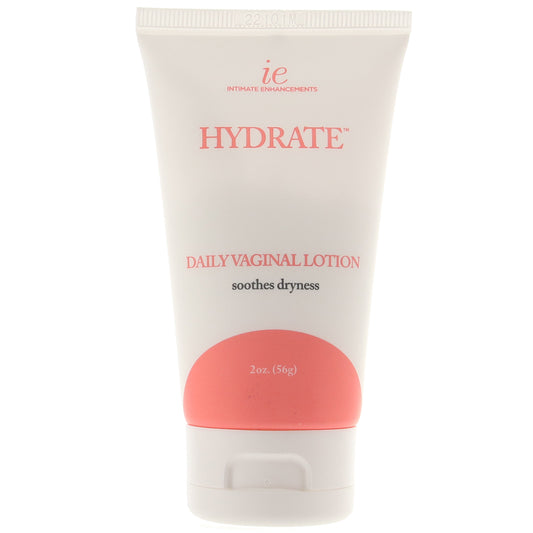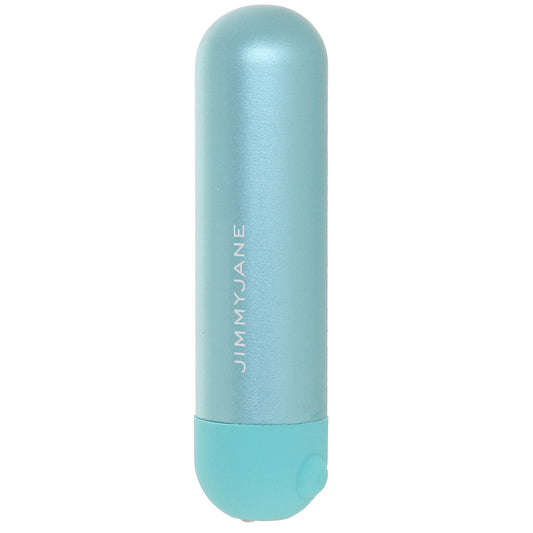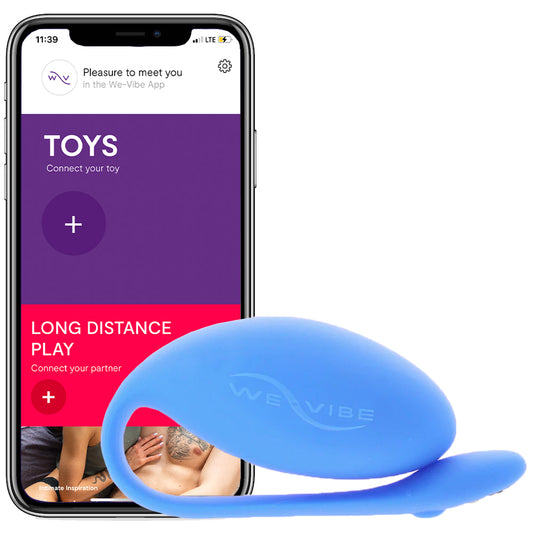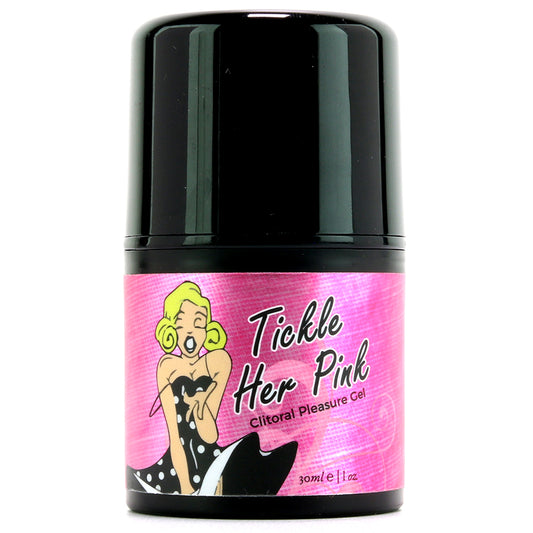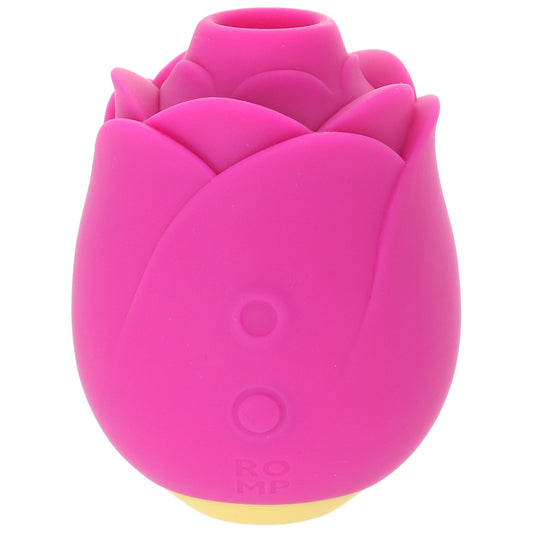
Real talk: The vaginal canal is a sacred place. And vaginal moisture is an important part of sexual health and sexual pleasure, especially if intercourse is your jam. There’s nothing better than getting wet in the summertime, amirite?
Seriously though, vaginal health is vital. If you or your partner is concerned about vaginal dryness -- or you just want to know how to increase vaginal lubrication or simply maintain that sweet, sweet vaginal moisture via natural methods, read on.
Is it normal for my vagina to be dry?
If you’ve experienced vaginal irritation due to dryness, you’re not alone. Vaginal lubricants tend to diminish in menopausal and postmenopausal women more than those in different life stages, but issues with vaginal discomfort and/or vaginal lubrication is a thing no matter what age you are.
According to Women’s Health Concern, “Around 17% of women aged 18-50 experience problems with vaginal dryness during sex, even before the menopause ... Many women may experience vaginal dryness during sex because they are not sexually aroused – this is often caused by insufficient foreplay or psychological reasons such as stress.”
In other words, a whole bunch of women have dryness, but dryness during sexual intercourse, is complex because it’s not just about female lubrication -- it’s about whether you’re actually getting turned on by what’s going on in the connection with your partner.
Back to menopause briefly: It’s helpful to know that menopause can limit natural lubrication and prompt something called vaginal atrophy. According to the Cleveland Clinic, this is “a condition where the lining of your vagina gets drier and thinner. This results in itching, burning and pain during sex, among other symptoms. The condition also includes urinary tract problems such as urinary tract infections (UTIs) and urinary incontinence.”
Don’t worry, though, we’ll get to what you can do about vaginal atrophy. Vaginal infections do not have to be in your present or future!
Estrogen production also drops during menopause (the average age of which is 51), since women’s ovaries stop producing it. And guess what one of the early signs of lowered estrogen levels is? You guessed it -- less lubrication during sexual activity! Roughly half of all postmenopausal women experience vaginal dryness. That’s millions of women.
So the answer is yes, vaginal dryness is normal -- and it’s also something you can do something about.
How to increase vaginal lubrication naturally
The good news is that there’s a lot you can do about this, and you don’t have to involve vaginal dilators or pharmaceutical-based treatment to do it. Here are a few ways to boost your vaginal lubrication naturally:
1. Hydrate
According to research, a whopping 75% of Americans may be chronically dehydrated! Are you one of them? If so, you might see pretty immediate results from drinking more H2O. The recommended 8 glasses of water a day will do the trick.
2. Take your vitamins
Specifically, vitamins D and E. Vitamin D is associated with hope (hi, mental health!), and it also helps to fight inflammation and can help prevent diabetes. According to research, taking vitamin D supplements daily can also boost your levels of vaginal lubrication.
Now onto Vitamin E, which is an antioxidant that both helps protect you from cellular damage, but it can also decrease issues related to vaginal atrophy. Fun fact -- health outcomes are significantly boosted when you take both vitamin D and vitamin D. So get on it!
3. Work out
When you get that cardio in, you’re getting the blood flowing -- literally. This helps with blood circulation, which includes down to those lady parts. Vaginal tissues love healthy blood flow.
Getting your heart rate up for 20-45 minutes twice or three times a week can make a world of difference not only in terms of blood circulation (which boosts the oxygen and nutrient-levels in your blood), but it also helps to balance those hormone levels. And the more balanced those are, the easier it is for your vajayjay to get those natural lubricants going.
4. Eat good fats
You’ve heard this before for brain health but here we go again: Fatty acids are awesome for you, and omega-3-6-9s in particular are helpful in reducing inflammation and help to build cell membranes, which includes those vaginal walls and that vaginal lining.
Particularly if you’re going through menopause, add these kinds of foods to your diet on the regular:
- Fish (salmon is great)
- Walnuts
- Chia seeds
- Sunflower seeds
- Almonds
- Cashews
- Protein! You want those amino acids that produce collagen, which helps with vaginal elasticity and your vagina's ability to produce more lubrication. Foods high in protein include avocados, eggs and yogurt
Since we’re on the subject of things to add to your diet, throw in sea buckthorn oil. This is another supplement that has healthy mono- and polyunsaturated fats, and is very hydrating. It’s often used in Ayurvedic and TCM (traditional Chinese medicine) traditions, and taking it daily for 3+ months will have you noticing a difference in vaginal moisture.
5. Get up, stand up
You’ve probably heard by now that sitting down is terrible for your health for a whole buncha reasons. Well, one of those reasons is that if you’ve got poor posture while sitting, you can limit blood circulation, which, as we’ve already covered, is not great for your lady bits.
If you sit for work, take lots of breaks. Get up, walk around, and stretch. This is a habit that will pay dividends both with respect to sexual activity as well as in life in general.
6. Get support with any sexual trauma
If you have a history of sexual trauma (child sexual abuse or adult sexual assault) -- which experts estimate is at least one-third of the entire female population -- then getting support with it can be a gamechanger.
This is true whether or not you’re partnered, though certain dynamics may be more obvious when you have a partner. There are some inspiring books and podcasts on the subject of overcoming sexual trauma and blocks, and it’s very much worth exploring. Trauma therapies like EMDR, Somatic Experiencing, and Network Spinal Analysis can be extra supportive here.
7. Use a vibrator on the regular
It turns out that vibration is also fantastic for upping blood flow, and, of course, stimulating arousal.
OB/GYN Dr. Gaudry of the Georgia Center for Menopausal Medicine, strongly recommends the use of a vibrator for both pre- and postmenopausal women. According to her, “After menopause, the blood supply to the pelvis is going to decrease because your body doesn’t need the ovaries and uterus to work anymore … If you don’t use this area of your body it is going to go away. It’s going to shrink up. The vagina shrinks in diameter, and the vagina shrinks in length. And if you are not having intercourse enough to keep this open and to keep the blood supply going in there, then a vibrator is the perfect instrument to help. What you can do is to take a vibrator that is the appropriate size for you, put it on high vibration, and put it into your vagina for even just 15 minutes every couple of days. This will increase the blood flow to the area. It will help the walls of the vagina thicken and it will keep the lubrication glands working.”
Vibrators can also be useful with respect to the vaginal opening during sex. According to Dr. Gaudry, “[M]any women have pain with intercourse and a lot of times, this is insertional pain. When the penis first goes into the vagina, it stretches it out a little bit and they experience some pain. But, if you take the vibrator and incorporate it into your foreplay - if you use the vibrator first and widen the vagina before you have intercourse and get to where you are comfortable, when he does put the penis inside of you, it is not going to be associated with pain, because you have already stretched it out.”
When should I use lube?
If you need a bit of an assist when it comes to wetness and intercourse, lube is here to help! And that’s whether you’re using a sex toy like an insertable vibrator, wand, dildo, or just playing on the outside or inside with fingers or whatever. (Did somebody say edible lube? ;) )
It’s also helpful to note that you may have heard of vaginal moisturizers, and those aren’t the same as lube. They’re more like face moisturizers, but for lady parts. If you’re going to go this route, just make sure you get one that’s pH-balanced. There are even vaginal moisturizers with hyaluronic acid, which gives that extra-moisturizing sensation.
Now back to lube! You can use water-based lubricants, which you should make sure are pH-balanced for optimal vaginal health. Or you can opt for silicone-based lubes, which are slick and fantastic -- you just don’t want to use them with silicone-based sex toys.
You can also use a natural lube like coconut oil, but it’s helpful to know that a) it may stain your sheets, and b) oil doesn’t play nice with condoms, so if you’re not on the fertility train, stay away from that.
Speaking of staying away from things, don’t use perfumed soaps on your vagina if they’re not pH-balanced. You want to make sure to keep your flora all meticulous up in there, and certain soaps can mess things up; you should especially avoid douching. Your vagina is self-cleaning; it does not require a douche, and you can actually harm the pH balance of your ladyville, which can lead to less-than-awesome vaginal secretions and/or vaginal discharge.
So when is the right time to use lube? All the time, basically. As long as it’s the right lube for the kind of sexual play you’re up to, there’s really never a wrong time. It’s not a replacement for everything else on the list (ya still gotta hydrate, people!), but it’s a fantastic supplement and can be especially helpful during sexual encounters.
Now what’re you waiting for? Get out there and get wet!
---
Sources
Staff Writers, "Vaginal Dryness Fact Sheet", Women's Health Concern. Published 2022. Accessed July 29, 2023. https://www.womens-health-concern.org/wp-content/uploads/2022/12/25-WHC-FACTSHEET-VaginalDryness-NOV2022-B.pdf
Staff Writers, "Vaginal Atrophy", Cleveland Clinic. Published Apr 10, 2023. Accessed July 29, 2023. https://my.clevelandclinic.org/health/diseases/15500-vaginal-atrophy#:~:text=What%20is%20vaginal%20atrophy%3F,(UTIs)%20and%20urinary%20incontinence
Staff Writers "75% of Americans May Suffer From Chronic Dehydration, According to Doctors", Medical Daily. Published Jul 03, 2013. Accessed July 29, 2023. https://www.medicaldaily.com/75-americans-may-suffer-chronic-dehydration-according-doctors-247393

